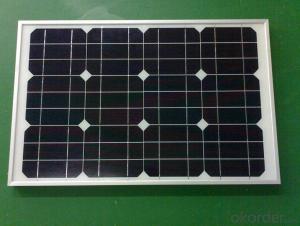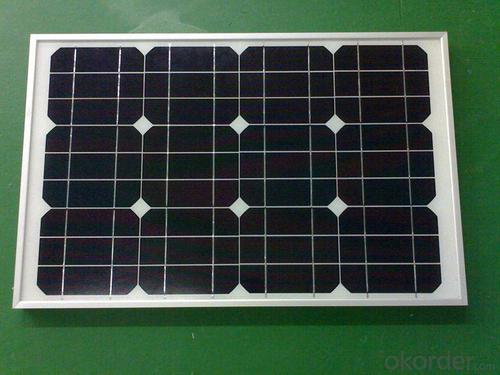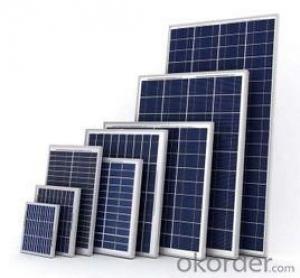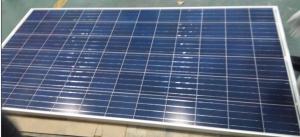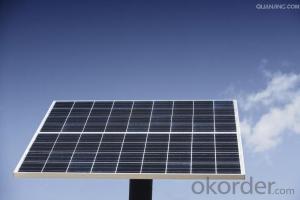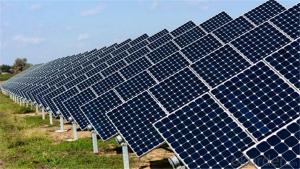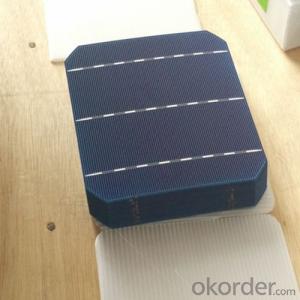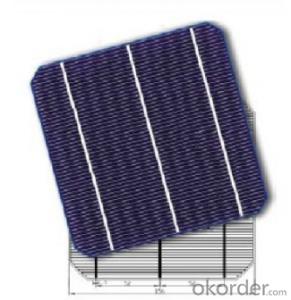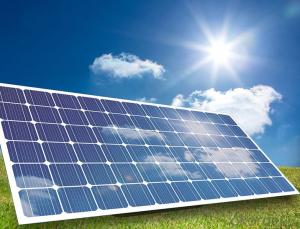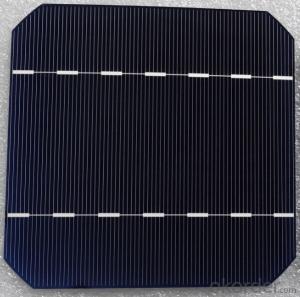Sep Solar Panels - Mono 156mm Solar Cells Photovoltaic Product Purchase
- Loading Port:
- Shanghai
- Payment Terms:
- TT OR LC
- Min Order Qty:
- 8250 watt
- Supply Capability:
- 10000000 watt/month
OKorder Service Pledge
OKorder Financial Service
You Might Also Like
Specification
Solar Module Summarize
Solar Module is the core part of solar PV power systems, also is the highest value part of it. The function of Solar Module is to convert the sun's radiation to electrical energy, or transfer it to battery and store in it, or to drive the load running.
The Product has been widely used in space and ground, it mainly used for power generation systems, charging systems, road lighting and traffic signs areas. It could offer a wide range of power and voltage, and with high conversion efficiency, and long service life.
Company Description
CNBM International Corporation, as an important external business platform of CNBM Group, plays as a role to export solar products produced by CNBM. Headquartered in Beijing, We have entered into Solar PV industry since 2005. CNBM Solar is specialized in PV power systems which takes advantage of reliable supplying, convenient installation and free maintenance, and has been used widely, and it is the compensation and substitution of normal power supply. We provide power solutions for home, business and industrial customers, and provide off-grid PV systems for rural area. Our company not only can supply high quality solar Products, but also provides professional system Solutions and high quality services.
Technical Parameter:
Model Type | Good Quality 250W Solar Panel |
Peak Power-Pmax(W) | 250W |
Open Circuit Voltage-Voc(V) | 44.2 |
Maximum Power Voltage-Vmp(V) | 36 |
Short Circuit Current-Isc(A) | 5.4 |
Maximum Power Current-Imp(A) | 5 |
Maximum System Voltage | 1000V DC |
Maximum Series Fuse Rating | 10A |
Power Tolerance | -1~+3% |
Temperature Coefficients of Pmax | -0.45%/℃ |
Temperature Coefficients of Voc | -0.348%/℃ |
Temperature Coefficients of Isc | 0.031%/℃ |
Nominal Operating Cell Temperature | 44.5±2℃ |
Standard Testing Condition(STC) | Irradiance:1000W/m²;Temperature:25℃;AM=1.5 |
Qualification Test Parameters | |
Operating Temperature | -40℃~+85℃ |
Storage Temperature | -40℃~+85℃ |
Pressure Bearing | ≥5400Pascal/m² |
Wind Bearing | ≥5400Pascal/m² |
Mechanical Characteristics | |
Cell Size | Mono 156*156mm±0.5 |
No.of Cells | 60pcs(6*10) |
Dimension | 1640*992*40mm |
Weight | 18.8Kg |
Glass | 3.2mm High Transmission,Low Iron |
Frame | Anodized Aluminum Alloy |
Junction Box | IP65Rated |
Internal Diodes | 3 Bypass Diodes |
Cable | 1*4.0mm² Length 900mm |
Product Show:
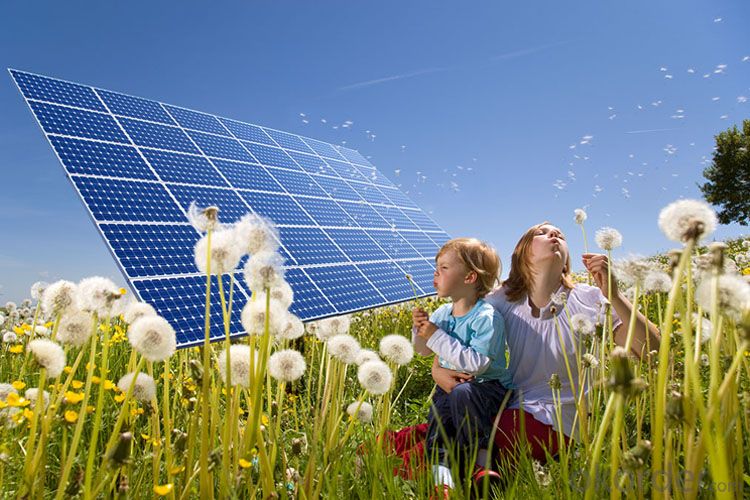
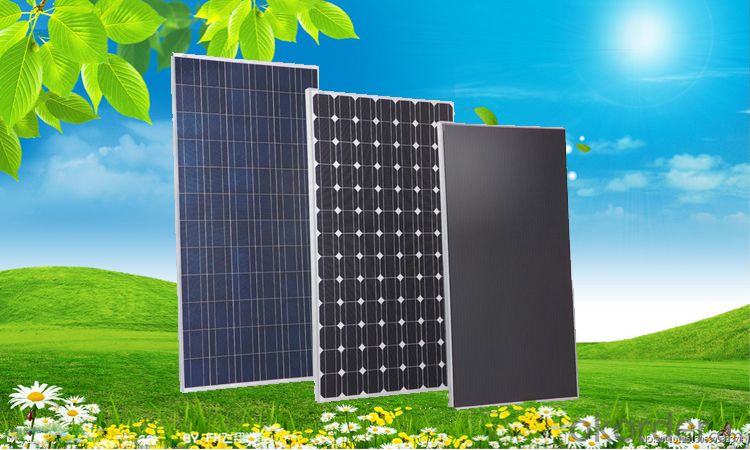
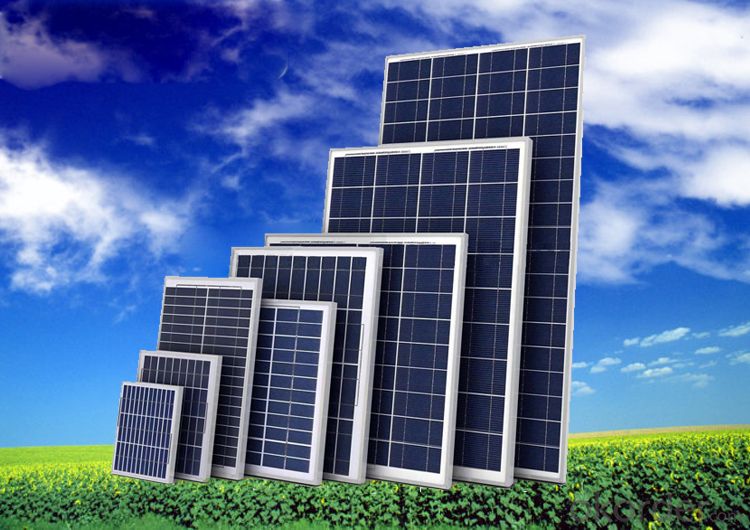
Packing & Shipping:
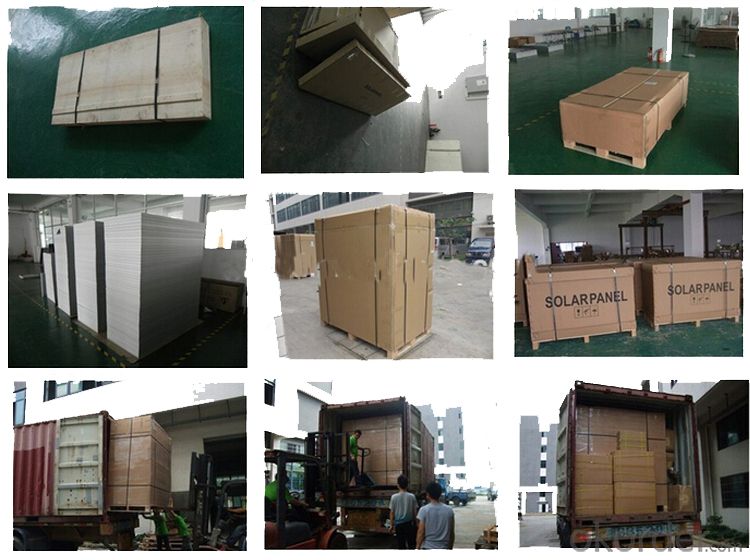
We have rich experience on how to pack the panels to make sure the safety on shipment when it arrives at the destination.
The normal size is packed by 25pcs/ carton / pallet. Paper carton for FCL shipping and wood carton for LCL shipping.
FAQ:
(1)Have you ever sold your products to companies in my country?
Of course, we have customers in all general PV markets, but I think we should expand our market share along with the market growth.
(2)When did your company set up? You are a new company, how can I believe your quality?
We entered into Solar PV industry in 2005, now we have several plants in manufacturing of a-Si and c-Si panels, and our capacity is 220MW per year. Till now we have already passed all the tests by authorized laboratories, e.g. TUV, VDE, UL.
- Q: How will i construct solar panel?
- The key is like a spiral stair case with landings at each floor, but the momentum of having to turn is enough to climb from floor to floor. I guess the energetics use the handrail quite utterly and only, pressing against it like bearings in a wheel. With metals and metalloids a 3' x 3' solar panel would power your house and car and make your energy bill negative, but costs several million dollars since the chain of rare elements is only affordable to obtain by strip-mining top soil of many square miles of fertile land just for a single panel and thus destroys good farmland for hundreds if not thousands of years. Clearly solar panels will not solve any problems ever...unless their yours only.
- Q: The Physics club in our school is trying to convince the Board of Ed to install solar panels in our school, and i was just wondering if anyone with some experience or real expertise in solar energy. I need some points about their usefulness some real pros and cons on maintenance, etc. Anything will help. Personally i would be perfectly for the idea, but i heard that the overall cost of installing them is much higher than the cost of the energy saved and government subsidies, but ive only heard about this.
- nan
- Q: 200 watt solar panel generates how much watts of electricity per month?
- Depends where you live. Each kWp will generate in a year about 750kWh in northern England, or 900kWh in the south. About ,00kWh in the south of Germany or up to 2,200 kWh in the Californian desert. The farther you are from the equator, the bigger the difference between summer and winter months: in S California summer months may only generate 2 times as much electricity as winter months. In the UK it can be 4-5 times as much. 200 W is 0.2 kWp so divide the numbers I gave by 5 and then divide by 2 to get the 'average' month - you really need to look up 'insolation tables' for your area though!
- Q: If a solar panel is a .5kW system, what length of time is it putting out that much power? Every hour?
- Power = work done/time taken In other words, Watts=Joules/second. In this respect, power is a little like speed (m/s). Your question is looking at a car with a 50mph top speed, and asking how long is it going that fast? The solar panel will produce .5KW for as long as you require it. Enough to boil a kettle, run a modest electric heater etc,
- Q: please no dumb answers and list where you got the info.Also how much does it cost to install solar panels for a regular sized house?
- Short version is that the sunlight knocks electrons loose from a semiconductor panel, and those loose electrons generate an electrical current. The solar panels have lots of cells arranged in series parallel to get to a higher voltage (usually 2 or 24 volts) and current. This is sent to charge batteries under the control of a charge controller. The voltage from the batteries is sent to an inverter that converts the 2/24 volts to 20/240 VAC for household usage. .
- Q: Can solar panels be installed on bus stops or shelters?
- Yes, solar panels can be installed on bus stops or shelters. This allows them to generate electricity from sunlight, which can be used to power lighting, signage, and other amenities at the bus stops or shelters. It also helps in reducing reliance on grid electricity and promotes the use of renewable energy sources.
- Q: Can solar panels be installed on a condominium or apartment building?
- Yes, solar panels can be installed on a condominium or apartment building. However, the feasibility and process may vary depending on factors such as building ownership, structural integrity, and local regulations. It is important to consult with professionals and obtain necessary permissions before proceeding with the installation.
- Q: The first solar panel that creates energy from UV rays... who created it
- The first photovoltaic cell was developed at Bell Labs in 954. The team included G.L. Pearson, C.S. Fuller, and D.M. Chapin. A panel is composed of many cells. They respond to a wide range of wavelengths, not just UV.
- Q: Can solar panels be used in areas with high temperatures?
- Yes, solar panels can be used in areas with high temperatures. In fact, solar panels are designed to withstand a wide range of temperatures, including high heat. However, it is important to note that excessive heat can slightly reduce the efficiency of solar panels. Therefore, proper installation and regular maintenance are crucial to ensure optimal performance in hot climates.
- Q: I am learning all about heat radiation in Physics. There is a question I am doing about Solar panels. It asks, why do glass covers improve the efficient of solar panels? I dont really understand. How do they?? thanks :D x
- the glass has an anti-reflective coating that helps the panel absorb more light (to convert to electricity) thant it would if the glass were not there. the other purpose of glass is to retain heat and strengthen the panel
Send your message to us
Sep Solar Panels - Mono 156mm Solar Cells Photovoltaic Product Purchase
- Loading Port:
- Shanghai
- Payment Terms:
- TT OR LC
- Min Order Qty:
- 8250 watt
- Supply Capability:
- 10000000 watt/month
OKorder Service Pledge
OKorder Financial Service
Similar products
Hot products
Hot Searches
Related keywords
